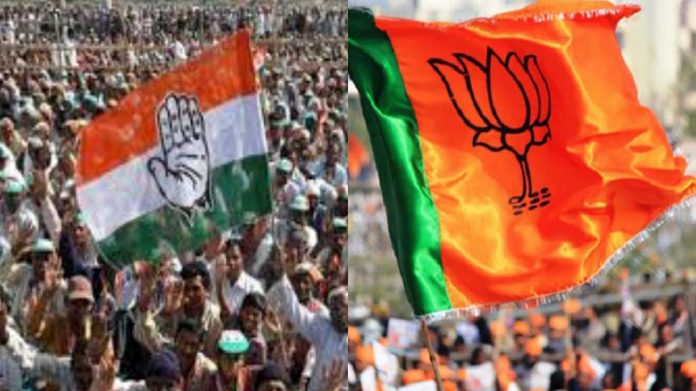Asad Shaikh, TwoCircles.net
New Delhi: The results of the Delhi Assembly elections have sent shockwaves through the political landscape. After 27 long years, the Bhartiya Janata Party (BJP) has finally broken the jinx and claimed the throne of the national capital. The BJP is poised to win 48 seats in the 70-member assembly, while the incumbent Aam Aadmi Party (AAP) has been reduced to just 22 seats.
Noted leaders from the AAP, such as Arvind Kejriwal, Manish Sisodia, Durgesh Pathak and Saurabh Bhardwaj, have all faced defeat in their respective constituencies.
But there is another narrative that has captured widespread attention — the vote split. In the tight contest between the BJP and the AAP, some believe that the Congress or other parties may have unintentionally influenced the outcome by dividing the votes.
Political analysts often point fingers at Hyderabad MP Asaduddin Owaisi, alleging that his party, the All India Majlise-e-Ittehadul Muslimeen (AIMIM) helped the BJP by splitting votes. Whether or not this claim holds weight is open to debate, but the election results this time tell a different story.
So, who split whose votes?
Out of the six Muslim-majority seats in Delhi, Owaisi’s party contested in two —Okhla, where AAP’s Amanatullah Khan won for third straight term, and Mustafabad, where BJP’s Mohan Singh Bisht emerged victorious.
In Okhla, AAP’s candidate secured 88,943 votes, while BJP’s candidate Manish Chaudhary garnered 65,304 votes. AIMIM candidate, Shifa Ur Rehman Khan, stood at distant third by securing 39,558 votes.
Similarly, in Mustafabad, AAP’s Adeel Ahmad Khan lost by a margin of 17,578 votes to BJP’s Bisht – who bagged 85,215 votes. AIMIM’s Tahir Hussain received around 33,474 votes.
Following the BJP’s win in Mustafabad, several journalists and analysts suggested that the vote split allegedly caused by the AIMIM played a key role in the success of the saffron party.
However, there are 10 constituencies where AAP candidates lost because of Congress votes effectively tipping the balance between victory and defeat.
The most significant of these is New Delhi Assembly constituency, where AAP chief and former Chief Minister Kejriwal lost by 4,089 votes. Meanwhile, Congress’s Sandeep Dikshit secured 4,500 votes, which made a crucial difference. BJP’s Parvesh Verma got 30,088 votes and registered victory.
Another critical seat was Jangpura, where former Deputy Chief Minister Sisodia, lost by just 675 votes to BJP’s Tarvinder Singh Marwah, who secured 38,859 votes. Congress veteran Farhad Suri bagged just 7,000 votes.
In Rajendra Nagar, Kejriwal’s close associate and the national spokesperson of his party was defeated by the BJP candidate with a margin of 1,231 votes, while Congress’s candidate took home around 4,000 votes.
At Sangam Vihar, AAP’s Dinesh Mohaniya lost by a mere 344 votes, while the Congress candidate garnered about 15,000 votes.
Saurabh Bhardwaj, a cabinet minister in the AAP government, lost by 3,188 votes, with the Congress candidate in his constituency securing nearly 6,000 votes, paving the way for a BJP victory there as well.
In addition, seats like Madipur, Badli, Kasturba Nagar and Nangloi Jat also saw AAP candidates lose to the BJP, largely due to the votes received by Congress candidates.
Was it a case of votes being split or simply reduced?
In the previous Delhi elections, the AAP secured around 53% of the vote share, but this time that figure dropped to 43.56%. This decline is attributed to ground-level issues, as well as public dissatisfaction with the image of AAP candidates. It is a significant shift in Delhi’s political landscape, a change shaped by both local factors and these critical votes.


